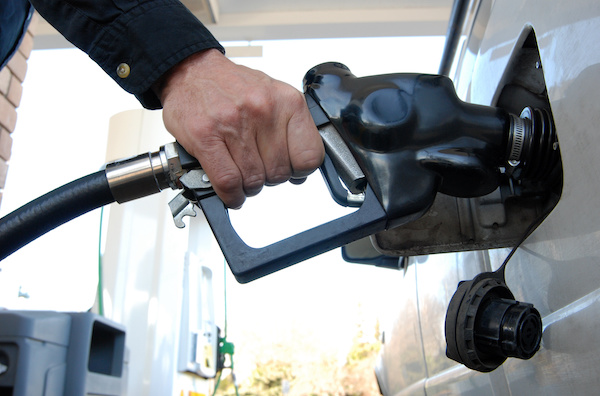
In today's world, where every dollar counts and environmental issues are at the forefront of our minds, fuel efficiency has become paramount for car owners everywhere. The quest for better fuel efficiency has taken center stage in the automotive industry, from reducing our carbon footprint to saving money on gas expenses.
Over here, we've seen firsthand the impact that fuel efficiency can have on both vehicles and their owners. In this blog, we'll address some of the most common questions surrounding fuel efficiency to ensure you get the most possible out of every gallon of fuel.
What factors affect fuel efficiency?
The make and model of your vehicle don't solely determine fuel efficiency. Several factors come into play, including driving habits, vehicle maintenance, road conditions, and even weather.
Aggressive driving behaviors like rapid acceleration and excessive speeding can significantly reduce fuel efficiency. Likewise, neglecting routine maintenance tasks such as oil changes, tire rotations, and air filter replacements can cause your vehicle to guzzle more gas. External factors like traffic congestion and adverse weather conditions can impact fuel efficiency.
How can I improve my fuel efficiency?
Improving fuel efficiency starts with adopting eco-friendly driving habits. Avoid sudden stops and starts, maintain a constant speed, and take advantage of cruise control on the highway to minimize fuel consumption. Keep your vehicle well-maintained by following the manufacturer's recommended maintenance schedule.
Regular tune-ups, proper tire inflation, and using a suitable grade of motor oil can all contribute to better fuel economy. Additionally, consider reducing excess weight in your vehicle and removing roof racks when not in use to decrease aerodynamic drag.
Is it true that certain fuel additives can enhance fuel efficiency?
While numerous fuel additives on the market claim to boost fuel efficiency, it's essential to approach them cautiously. Many of these products lack scientific evidence to support their claims and may even harm your vehicle's engine or emissions system.
Instead of relying on additives, focus on using high-quality fuel from reputable gas stations. Top-tier gasoline contains detergents and additives designed to keep your engine clean and running efficiently.
Can regular maintenance improve fuel efficiency?
Absolutely! Routine maintenance is crucial for optimizing fuel efficiency and prolonging the lifespan of your vehicle. Regular oil changes, filter replacements, and tune-ups ensure your engine operates smoothly and efficiently. Keeping your tires properly inflated and aligned reduces rolling resistance, allowing your vehicle to move more effortlessly and consume less fuel.
How do I know if my vehicle's fuel efficiency is below average?
Monitoring your vehicle's fuel efficiency over time can help you identify any significant deviations from its typical performance. Keep track of your fuel consumption by recording mileage and fuel purchases regularly.
Many modern vehicles are equipped with onboard fuel economy displays that provide real-time feedback on your driving habits and fuel usage. If there is a sudden drop in fuel efficiency or persistent issues despite adopting fuel-saving techniques, it may be time to have your vehicle inspected by a qualified technician.
How can I calculate my vehicle's fuel efficiency?
Calculating your vehicle's fuel efficiency is straightforward and requires a few simple steps. This can be done by filling up your gas tank and recording the mileage on your odometer. Then, drive as you normally would until your tank is nearly empty, making note of the mileage again.
To determine your fuel efficiency, divide the miles traveled by the amount of fuel consumed during that period. Repeat this process over several tank refills for more accurate results and to calculate the average fuel economy.
Are there any aftermarket modifications that can improve fuel efficiency?
While countless aftermarket products claim to enhance fuel efficiency, the effectiveness of these modifications can vary significantly. Some popular modifications include installing aerodynamic upgrades, such as air dams and spoilers, or upgrading to high-flow air filters and exhaust systems.
However, it's essential to approach aftermarket modifications with caution, as they may void your vehicle's warranty or cause unforeseen complications. Before making any modifications, consult a qualified automotive technician to ensure compatibility and effectiveness.
Does fuel quality impact fuel efficiency?
The quality of fuel you use can indeed affect your vehicle's fuel efficiency and overall performance. Lower-quality fuels may contain impurities or additives that can harm your engine and reduce fuel economy.
Top-tier gasoline, which meets stringent quality standards set by major automakers, contains detergents and additives that help keep your engine clean and maximize fuel efficiency. While top-tier gasoline may be slightly more expensive, the long-term benefits in terms of engine performance and fuel economy outweigh the upfront cost.
How does driving speed affect fuel efficiency?
Driving speed plays a significant role in determining fuel efficiency, with higher speeds typically resulting in increased fuel consumption. As your speed increases, so does aerodynamic drag, which requires more energy to overcome. Maintaining a moderate and consistent speed can minimize aerodynamic resistance and improve fuel efficiency.
Visit Import Auto Specialists Today!
At Import Auto Specialist, we're passionate about helping our customers get the most out of their vehicles. Whether you need routine maintenance, fuel system diagnostics, or advice on improving fuel efficiency, our qualified mechanics are here to assist you at every step. Schedule an appointment with us today, and let us help you achieve peak performance and fuel efficiency for your vehicle.